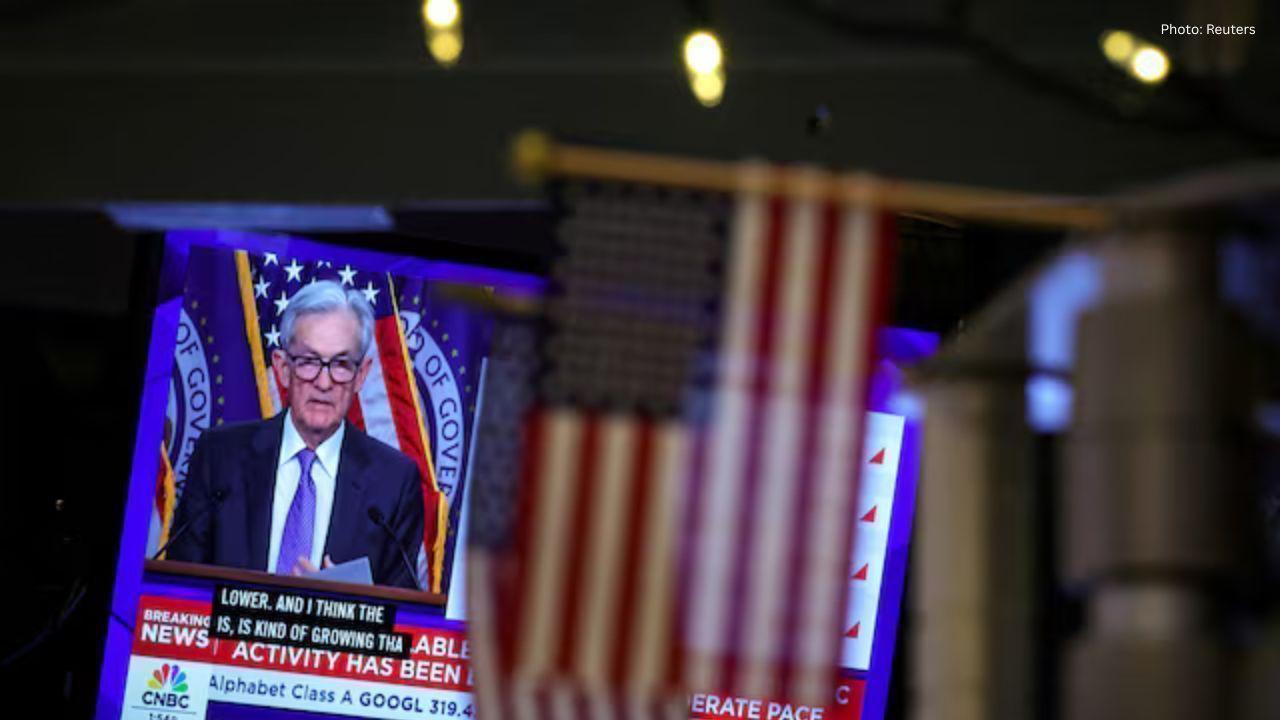You have not yet added any article to your bookmarks!

Join 10k+ people to get notified about new posts, news and tips.
Do not worry we don't spam!

Post by : Anis Farhan
The roar of internal combustion engines is steadily being replaced by the silent hum of electric vehicles, and nowhere is this transition more dramatic than in China. The world’s largest automotive market has become an undisputed epicenter of EV innovation and adoption, but it is now also the crucible of a brutal price war, a phenomenon that is sending ripples far beyond its borders. The "Decoding the Dragon" article aims to unravel the complexities of this battle royale, examining its origins, immediate consequences, and the profound, long-term implications for global markets.
To understand the current price war, one must first grasp the unique ecosystem that China has cultivated for its EV industry. For years, Beijing strategically incentivized EV production and consumption through generous subsidies, tax breaks, and non-financial benefits like priority license plates in congested cities. This policy push, coupled with an eager domestic market, led to an explosion of EV startups – a veritable "thousand flowers bloom" scenario, featuring hundreds of new brands vying for market share.
While this initial phase fostered innovation and rapid technological advancement, it also sowed the seeds of overcapacity. As government subsidies began to taper off in late 2022 and early 2023, many manufacturers found themselves with inflated production capacities and a sudden contraction in demand. The response was inevitable: to move inventory and maintain market relevance, companies began slashing prices.
The first significant salvo came from Tesla, which, facing increased competition and a desire to boost sales, initiated aggressive price cuts in late 2022. This move, from an established global player, sent shockwaves through the market, forcing domestic competitors to respond in kind. What started as tactical adjustments quickly spiraled into a full-blown price war, exacerbated by China's slowing economic growth and cautious consumer spending. Brands like BYD, Nio, Xpeng, Li Auto, and even traditional automakers' EV divisions, found themselves in a race to the bottom, often sacrificing profit margins for volume.
For Chinese EV manufacturers, the price war is a brutal stress test. On one hand, it's forcing a much-needed consolidation in an overly crowded market. Smaller, less efficient players or those with weaker technological offerings are struggling to compete and are likely to be acquired, merge, or simply disappear. This consolidation, while painful in the short term, could ultimately lead to a stronger, more resilient domestic industry dominated by a few highly competitive giants.
Companies like BYD, already a global EV powerhouse, are demonstrating remarkable resilience. Their vertically integrated supply chain, from battery production to chip design, gives them a significant cost advantage. This allows them to absorb price cuts more effectively than rivals who rely heavily on external suppliers. BYD’s aggressive pricing strategy, particularly with models like the Seagull, has not only boosted its domestic market share but also positioned it as a formidable global contender.
However, even established players are feeling the squeeze. Profit margins across the industry have thinned considerably. Research and development budgets, crucial for staying ahead in a rapidly evolving technological landscape, are under pressure. This could slow down the pace of innovation for some, while others might double down, hoping that superior technology can eventually justify a premium. The intensity of competition is also pushing companies to differentiate themselves beyond price – focusing on smart features, battery technology, charging infrastructure, and user experience. The era of simply offering a cheaper EV is over; the focus is shifting to offering compelling value at a competitive price.
The price war also highlights the dual-edged sword of government intervention. While subsidies nurtured the industry, their withdrawal, coupled with an intense competitive environment, is now accelerating market forces, forcing companies to stand on their own economic feet. This transition is proving to be a Darwinian exercise, separating the truly innovative and efficient from the merely opportunistic.
The implications of China's EV price war extend far beyond its borders, affecting established global automakers, nascent EV markets, and the strategic geopolitical landscape.
Impact on Global Automakers: Traditional automotive giants like Volkswagen, General Motors, Mercedes-Benz, and BMW, who have significant investments in China and ambitious global EV plans, are directly impacted. They face immense pressure to match the aggressive pricing of their Chinese counterparts, especially in China, where they risk losing substantial market share. This forces them to re-evaluate their cost structures, supply chains, and pricing strategies globally.
For example, Volkswagen, a dominant player in China's traditional automotive market, is struggling to gain traction in the EV segment against agile Chinese rivals. The price war means they either accept lower margins, accelerate their cost-cutting initiatives, or risk becoming uncompetitive. This pressure is not confined to China; as Chinese brands look to export their competitively priced EVs, they will increasingly challenge established automakers in Europe, Southeast Asia, Latin America, and eventually, potentially, North America. This foreshadows a global race to efficiency and affordability.
Export Boom and Market Disruption: The intense competition in China is not just leading to lower prices domestically; it's also fueling an export boom. Chinese EV manufacturers, facing saturated and highly competitive home markets, are actively seeking new growth avenues abroad. Their cost-competitive vehicles, often packed with advanced features, pose a significant threat to local manufacturers in emerging markets and even established players in developed economies.
Countries in Southeast Asia, Latin America, and parts of Europe are already seeing a surge in competitively priced Chinese EVs. These vehicles offer compelling value propositions, making EV ownership more accessible to a broader consumer base. While this accelerates global EV adoption, it also disrupts existing market dynamics, potentially displacing local production and challenging the market dominance of traditional automotive brands. The speed and scale of this export push are unprecedented, signaling China’s intent to become a global leader, not just a domestic powerhouse, in automotive manufacturing.
Technological Transfer and Innovation Cycles: The sheer volume and speed of innovation driven by the Chinese market are pushing the boundaries of EV technology. From advanced battery chemistries (like BYD's Blade Battery and CATL's Qilin Battery) to sophisticated autonomous driving systems and smart cockpits, Chinese manufacturers are rapidly closing the technological gap with, and in some areas surpassing, their Western and Japanese counterparts. The price war, in a perverse way, could accelerate this innovation by forcing companies to find ever more efficient ways to produce cutting-edge technology.
This intense competition also forces global automakers to accelerate their own R&D efforts. They must innovate faster, reduce costs more aggressively, and adapt to rapidly changing consumer preferences, especially those influenced by the feature-rich and often more affordable Chinese models. The "decoding the dragon" extends to understanding that China is not just a market, but a driver of global EV technological benchmarks.
Geopolitical Implications and Trade Tensions: The rise of Chinese EVs, fueled by aggressive pricing and export ambitions, is inevitably stirring geopolitical tensions. Concerns about unfair competition, state subsidies, and national security are prompting protectionist measures in some regions. The European Union, for instance, has launched an investigation into Chinese EV subsidies, raising the specter of tariffs. The United States, already wary of Chinese technological dominance, maintains high tariffs on Chinese-made vehicles.
These trade tensions could escalate, potentially leading to a fragmentation of the global EV market. Countries might prioritize local production, even if it means higher costs for consumers. This could slow down global EV adoption and reduce the benefits of economies of scale. The price war, therefore, is not just an economic phenomenon but a significant factor in the broader geopolitical contest for technological and industrial leadership.
Consumer Benefits and Choices: While manufacturers grapple with intense pressure, consumers worldwide are poised to benefit. The fierce competition is driving down EV prices, making electric mobility more affordable and accessible. This is a critical factor in accelerating the global transition away from fossil fuels. Consumers will also benefit from a wider array of choices, with diverse designs, features, and price points emerging from the Chinese market.
The push for efficiency and innovation driven by the price war is also likely to lead to better battery performance, faster charging capabilities, and more advanced in-car technologies. For the average car buyer, the "Decoding the Dragon" means more electric bang for their buck, which is a win for both personal finance and environmental sustainability.
The Chinese EV price war is not a transient blip; it represents a fundamental recalibration of the global automotive industry. It's an accelerant for several long-term trends:
Consolidation and Efficiency: Expect significant consolidation within the Chinese EV market, leading to a leaner, more efficient industry. This will likely create a few mega-players capable of competing globally on both price and technology.
Global Cost Benchmarks: Chinese EV pricing will increasingly set the global benchmark for affordability. This will force all automakers to radically rethink their manufacturing processes, supply chains, and cost structures to remain competitive.
Innovation Acceleration: The relentless competition will continue to drive rapid innovation in battery technology, software, and autonomous driving. China's market will remain a hotbed for testing and deployment of new EV technologies.
Shifting Automotive Hierarchy: The traditional automotive hierarchy, dominated by Western and Japanese brands for decades, is being challenged. Chinese brands are not just competing on price but also on quality, design, and technology, increasingly positioning themselves as global leaders.
Supply Chain Reshaping: The emphasis on cost reduction and vertical integration will lead to a re-evaluation and restructuring of global automotive supply chains. Companies will seek greater control over critical components, particularly batteries and semiconductors, to enhance resilience and reduce costs.
Protectionism vs. Open Markets: The tension between the benefits of global free trade and the desire for national industrial protection will intensify. How various governments navigate this will significantly impact the speed and nature of the global EV transition.
In conclusion, the Chinese EV price war is far more than a localized market event. It is a powerful force that is "decoding the dragon" for the entire automotive world – revealing new strategies for efficiency, accelerating technological advancement, reshaping global competition, and ultimately, redefining the future of mobility. The companies that adapt quickly, embracing efficiency, innovation, and strategic global partnerships, will be the ones that thrive in this new automotive order. Those that cling to old paradigms risk being left behind in the silent, electric revolution.
This article is intended for informational purposes only and does not constitute financial or investment advice. The views expressed are based on current market analysis and may be subject to change.










Rashmika Mandanna, Vijay Deverakonda Set to Marry on Feb 26
Rashmika Mandanna and Vijay Deverakonda are reportedly set to marry on February 26, 2026, in a priva

FIFA Stands by 2026 World Cup Ticket Prices Despite Fan Criticism
FIFA defends the high ticket prices for the 2026 World Cup, introducing a $60 tier to make matches m

Trump Claims He Ended India-Pakistan War, Faces Strong Denial
Donald Trump says he brokered the ceasefire between India and Pakistan and resolved eight wars, but

Two Telangana Women Die in California Road Accident, Families Seek Help
Two Telangana women pursuing Master's in the US died in a tragic California crash. Families urge gov

Ranveer Singh’s Dhurandhar Roars Past ₹1100 Cr Worldwide
Ranveer Singh’s Dhurandhar stays unstoppable in week four, crossing ₹1100 crore globally and overtak

Asian Stocks Surge as Dollar Dips, Silver Hits $80 Amid Rate Cut Hopes
Asian markets rally to six-week highs while silver breaks $80, driven by Federal Reserve rate cut ex